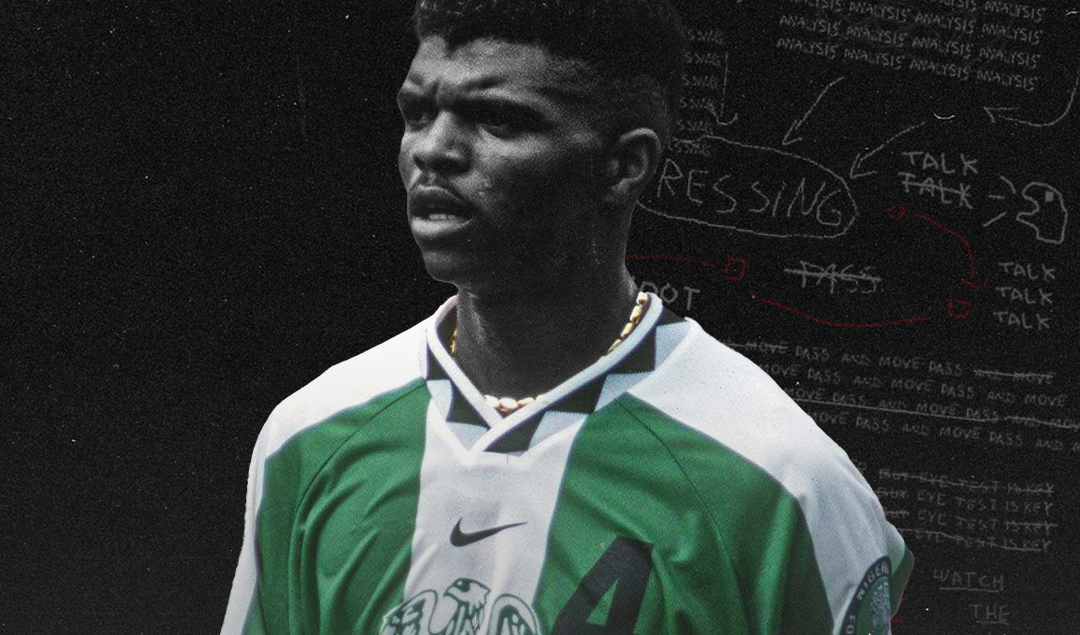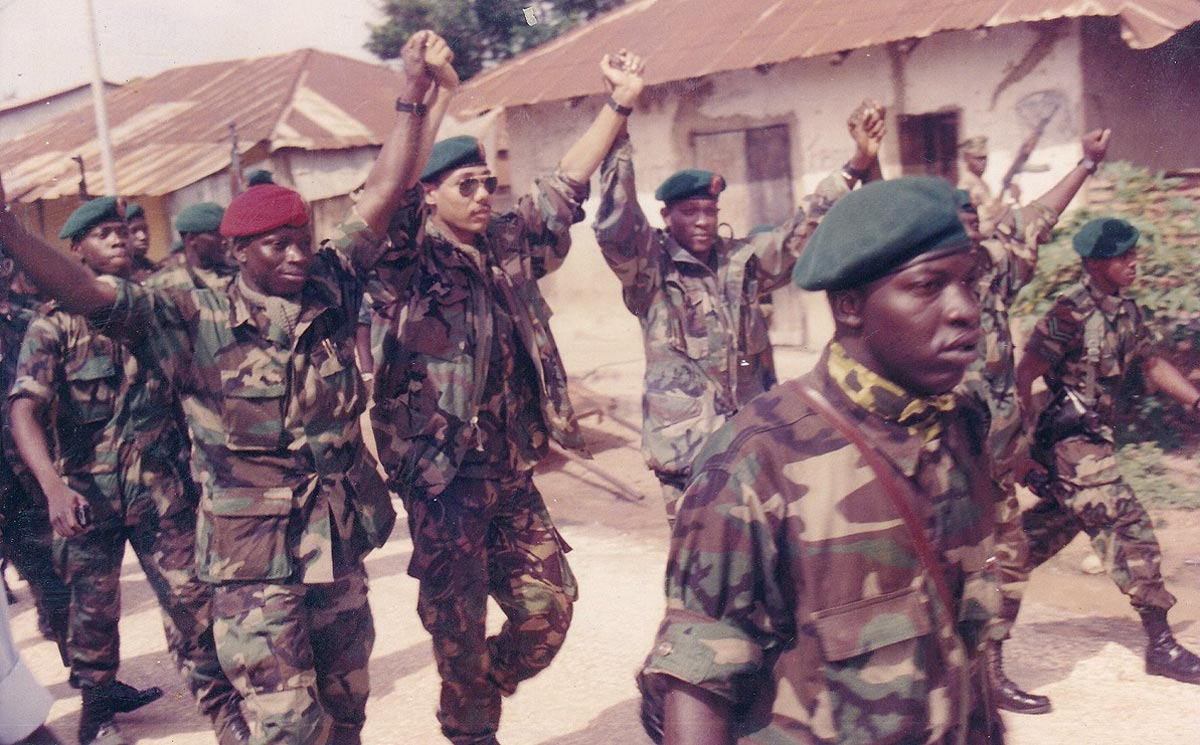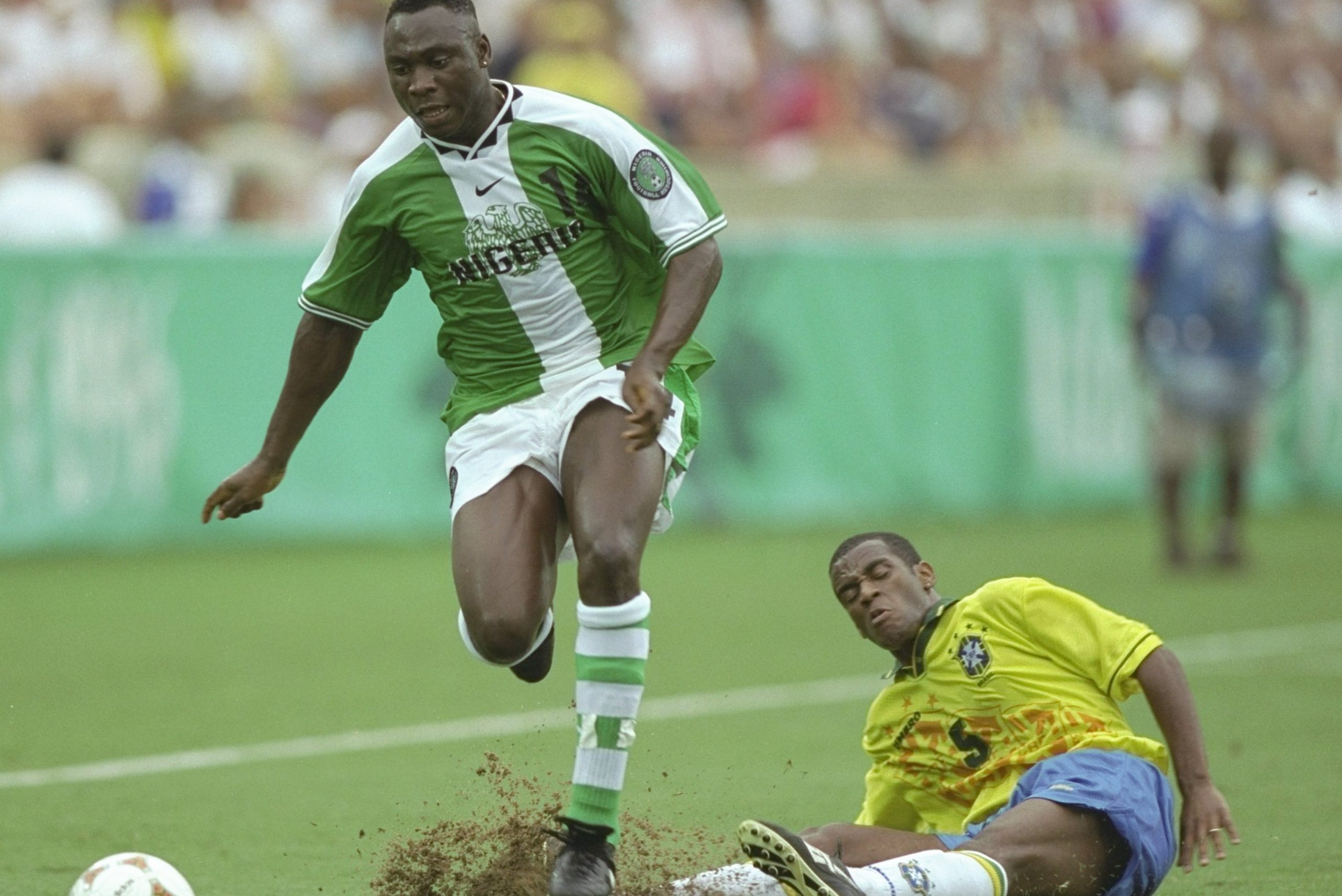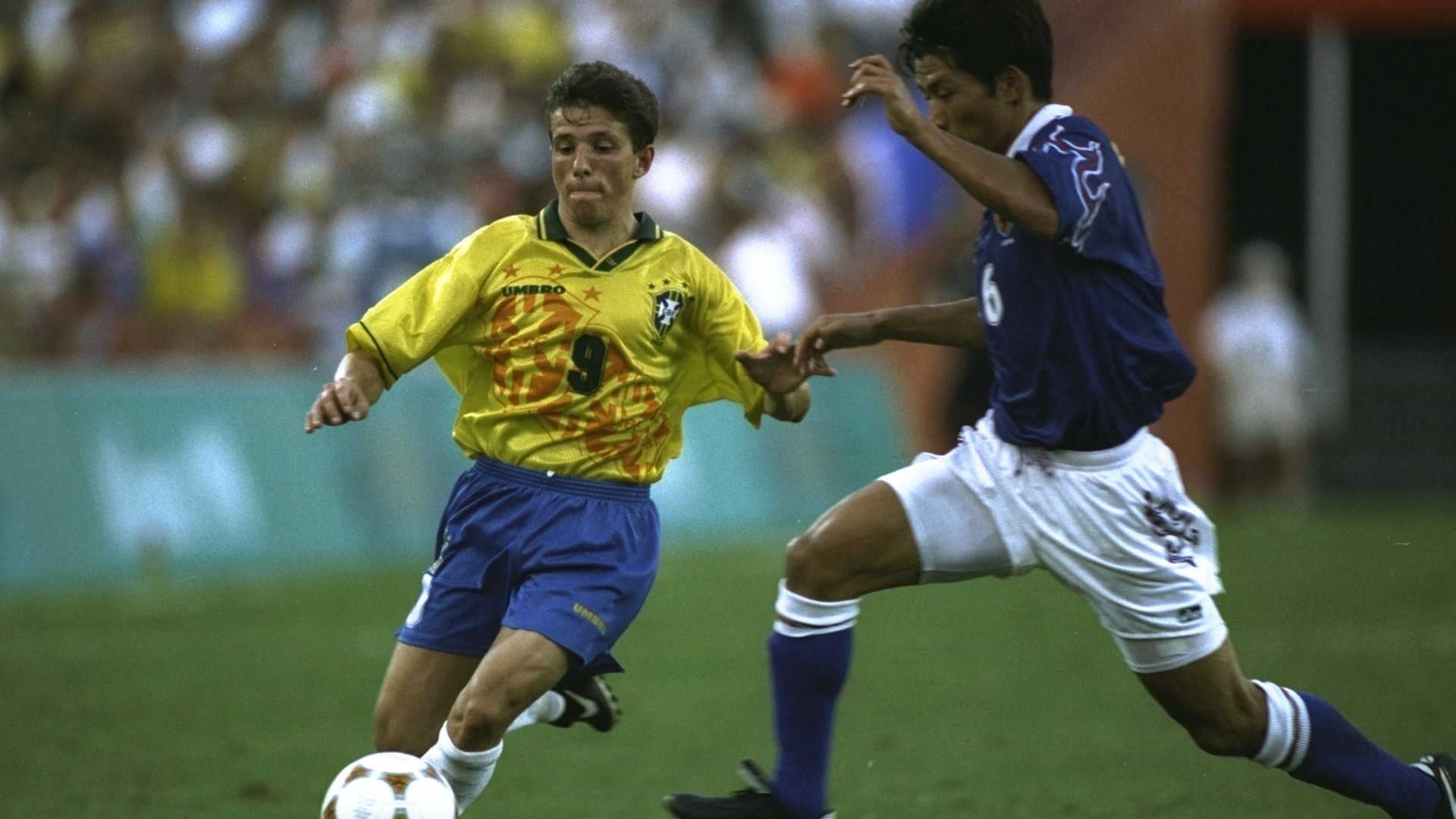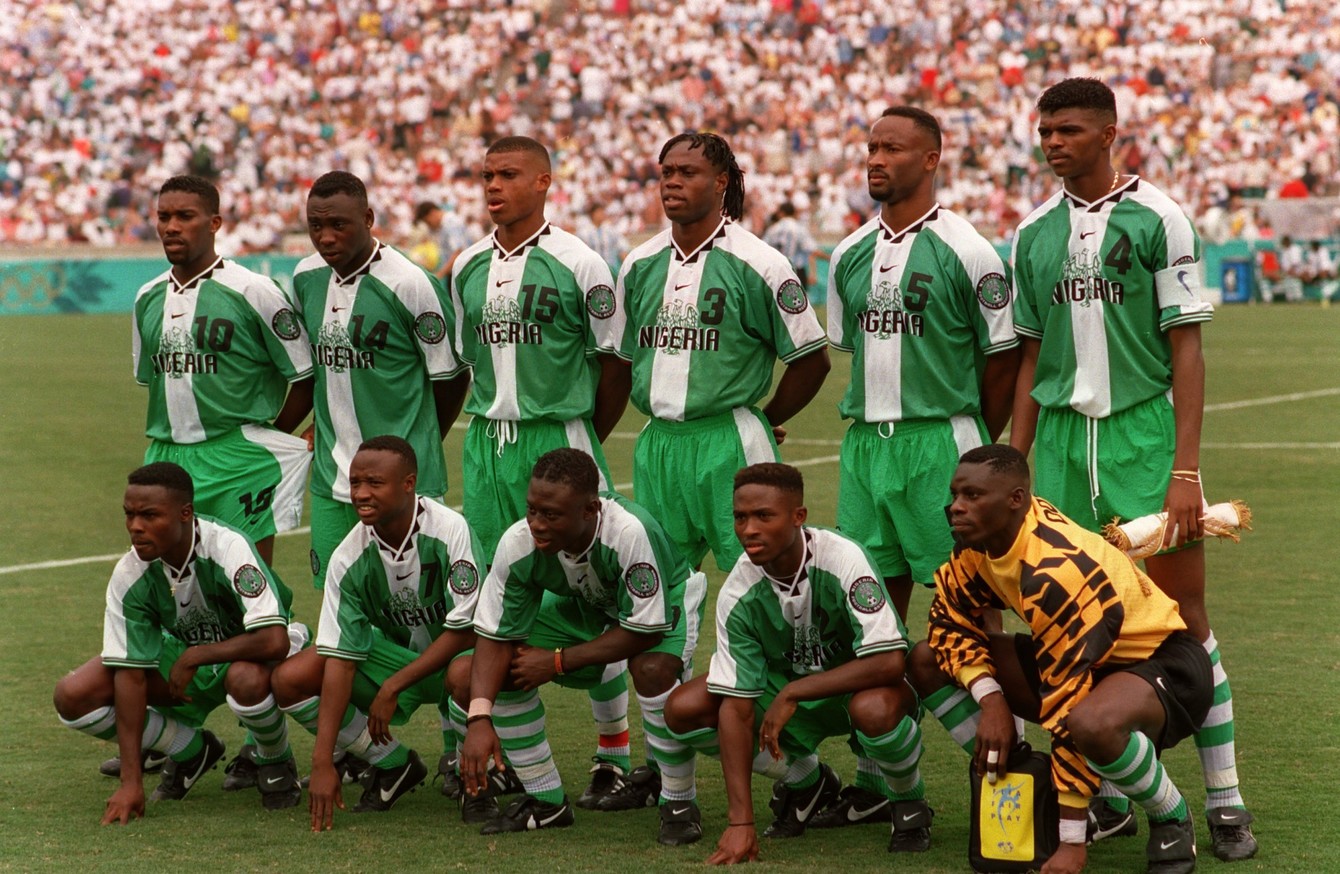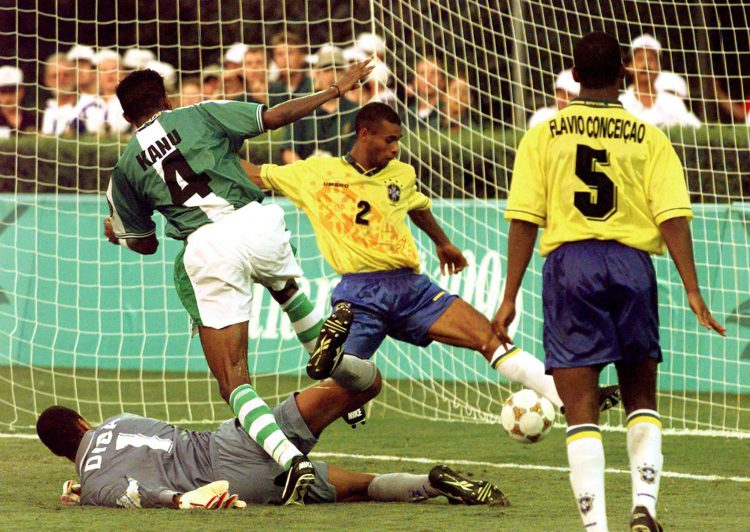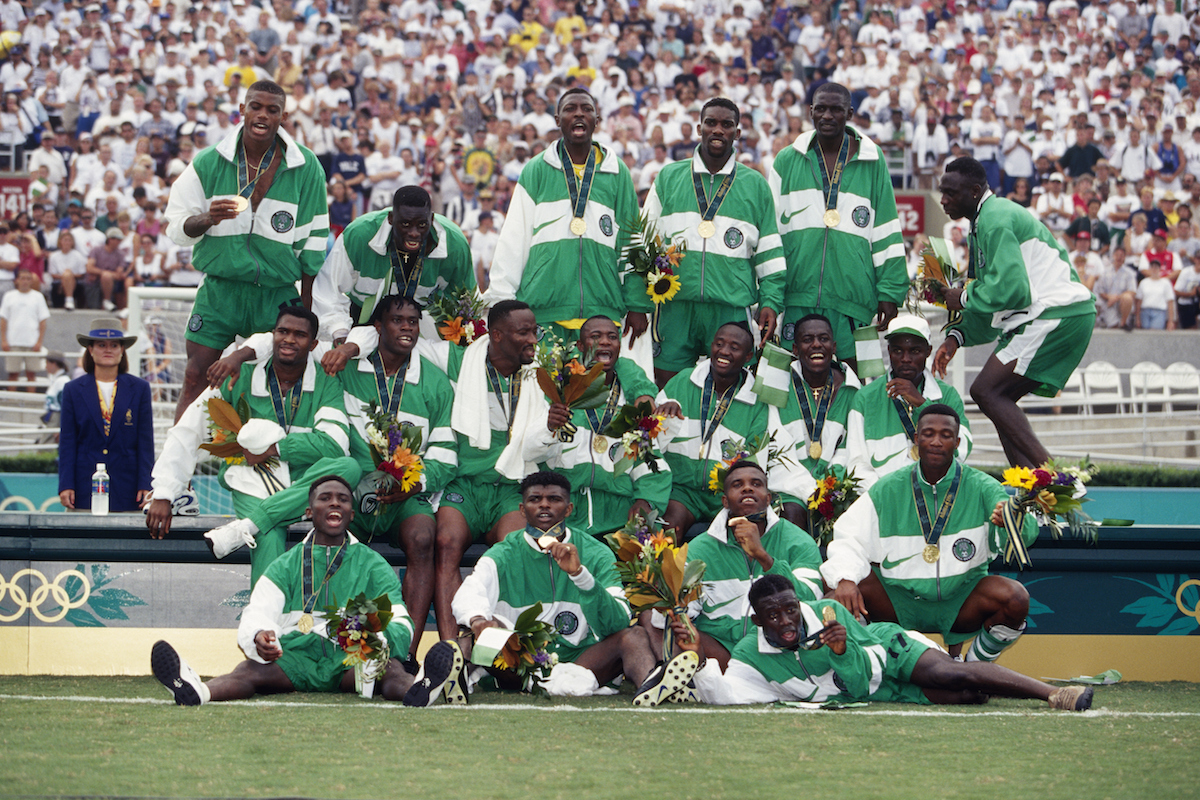The Miracle of Atlanta: Nigeria at the 1996 Summer Olympics
Pierre de Coubertin, the father of the modern Olympic Games, saw peace as one of the key notions behind the world-famous sporting event. The French historian believed that wars which had hampered mankind through the 19th century could be aided by the power of education and sport and enhancing that would be one of the key principles of the Games.
The Olympic motto, “Citius, Altius, Fortius” (Latin for higher, faster, stronger), supports that view, suggesting that the Games tests human endurance with the aim of uniting nations together, and there are countless stories from the last century that have been inspired by de Coubertin’s ideology.
One such story comes from the Games held in Atlanta, Georgia, who hosted the Summer Olympics in 1996. That year, there was one nation that got away from the stranglehold of civil warfare and came together for one magical fortnight where they defied expectation and amplified euphoria.
Football was on the rise in the region in the 1990s. Having just hosted an enjoyable World Cup two years prior and seeing domestic football kick it up a notch with the creation of Major League Soccer, there was keen interest in the football tournament at the year’s Olympics.
There was a great participating pool as well, with the likes of Argentina, Italy, France and defending world champions Brazil gunning for the elusive gold medal. Amongst them were minnows Nigeria, who were drawn with the Seleção in the group stages and were looking to cause an upset.
Coming into the tournament, the West African nation was ravaged by political issues that had taken plenty of lives. The elections that were held three years prior were won by the popular Moshood Abiola, but just four months after that, a power-hungry General Sani Abacha seized the regime and used military force to suppress outspoken civilians.
Photo: FOROYAA NEWSPAPER
For years, corruption continued with money laundering and illegal activities rife. A year before the Olympics, the execution of famous activist Ken Saro-Wiwa raised fears and the nation was troubled.
At the time, football, and sport in general, was a key source of optimism for Nigeria. At the 1994 World Cup, Nigeria performed well, qualifying for the knockout stages in their very first participation, losing to eventual runners-up Italy, while the nation took great pride in Nwankwo Kanu and Finidi George, who had won the Champions League with Ajax in 1995.
However, just before the Olympic Games, there was the 1996 African Cup of Nations which was to be held in South Africa. Nigeria were the defending champions of the competition and were the favourites to win again having done well since.
There was one issue, though. The political scenario created huge complications and after the execution of Saro-Wiwa, South Africa’s inspiring leader, Nelson Mandela, insisted that the country be suspended from the Commonwealth of African Nations. Angered by Madiba’s actions, he revolted by banning his own country from participating at that year’s Cup of Nations and there was further joy taken away from the Nigerian people.
Recent events caused huge distress, and many saw the Olympics as a way of salvaging some happiness. There was hope that the country could do well, as their recent growth was decent. Combine that with the fact that Nigeria continuously did well in youth tournaments, including a second-placed finish at the World Youth Championships in 1989 and a U-17 World Cup victory in 1993, this was a good chance to aid an ailing country.
For the U-23 tournament, the likes of Kanu, Taribo West and Jay-Jay Okocha were all selected and the overage quota was filled with Emmanuel Amuneke and Uche Okechukwu, who had played in the World Cup two years ago.
There were two perspectives that surrounded Nigeria’s aspirations at the Olympics. One was the aforementioned local perspective, where many people believed that the football team could once again work their magic on the international scene and produce something of note. The other was the international perspective, where football was a tangential story to corruption and civil unrest and there was firm belief that qualification to the knockout stages was the furthest this team could go.
In Nigerian eyes, this team was aptly christened as the “Dream Team”, but that was hardly reflected outside of the region. Along with a Brazil side that was led by the great Mário Zagallo and featured the likes of Bebeto, Rivaldo, Ronaldo and Roberto Carlos, the Flying Eagles were drawn with Japan and Hungary.
Photo: David Cannon – Getty Images
The team’s Dutch coach, Johannes Bonfrère, was firm on his objectives. Just months before the tournament, Bonfrère had some issues with the Nigerian FA. He once even left his role due to unpaid wages but was convinced to come back by the playing squad and just before the tournament, after a 5-1 friendly loss to Togo, he was on thin ice. There was more talk of the sack but seeing as it was so close to the big kick-off, the FA held themselves back.
His squad arrived in the States early, preparing themselves by acclimatizing to the conditions with training camps in Tallahassee, Florida. They wanted to get their heads away from issues beyond their control and focus on their football. Sadly, further incompetence of the FA meant that they fell short of funds and it was later revealed by many from that camp that the players had to pay for services themselves rather than receive allowances from the administration.
To add to the problems, the team’s hotel would refuse to provide laundry services in the poorly judged fear of contracting AIDS, meaning that these footballers had to be more than just footballers. Nonetheless, they knew the task at hand, and they had no option but to get on with it.
Fortunately for the Super Eagles, the tournament’s schedule was kind to them. They would square off against the favourites last and had the chance to score some points against the less-fancied opposition.
They took that chance with both hands. In their first game against Hungary at the Citrus Bowl in Orland, the talismanic Kanu, who was also the captain of the side, scored the only goal on the cusp of half-time to give Nigeria a massive advantage.
It was a fine goal from this exuberant side that provided an indication of things to come. Kanu started the move, played a rapid give-and-go, before finishing with poise. It wasn’t the prettiest of performances, with scars and bumps aplenty, but it was efficient. They were good, but there was room for improvement.
Beyond the football itself, Nigeria had a strange psychological tactic behind their success against Hungary. The two teams were residing in the same hotel and they would use that to their advantage, as described by the team’s goalkeeper, Joseph Dosu.
“If they were eating, we would also do the same and divide ourselves. If two of them were sitting in one place, we also joined them and once we kept doing that, they would just carry their food and leave. Through that, we tried to intimidate them, and we got it. We needed the first game.”
The next clash against Japan was set to be a little more complicated. The Asian nation had just laid the foundations for their 100-year plan, a strategy created by the country’s football association that saw them winning the World Cup by 2092.
To reach there, improving youth football was a key objective and these Games were a great place to show their commitment. They started in the best way possible, winning their opening match against Brazil and this was set to be a tight encounter.
Photo: Clive Brunskill / Getty Images
Against Japan, there was a similar story to the previous game. Nigeria weren’t too flashy, instead focusing solely on getting the job done. They knew three points here would guarantee progression to the next round and reduce the dread when facing Brazil.
The goals came late, but they were absolutely worth it. Tijani Babangida and Jay-Jay Okocha scored in the 2-0 win – both coming after the 80th minute – and sealed progression, meaning that the match against Brazil was just to confirm who would win the group.
By the final group game, the Seleção’s form had picked up and they were raring to go. Against Nigeria, a Ronaldo goal settled things and their superior goal difference despite relatively underwhelming showings so far meant that they had won the group. In the process, an all-African quarter-final was avoided as it was Brazil who faced Ghana and Nigeria who would face Mexico for a place in the last four.
Apart from household names like Kanu and Okocha, there were others that shone in this Nigerian setup. One such player was the left-back, Celestine Babayaro. The Anderlecht full-back was arguably the best in that position to ever grace the pitch for Nigeria and his career proved it.
After his stint in Belgium, he would go on to play in England with Chelsea and Newcastle United, winning several European and domestic honours while his international career would take him to two World Cups and two Olympic Games which added to his winning medal from the 1993 U-17 World Cup. Tenacious and intelligent, he was crucial to this Nigerian setup.
In the last-eight clash against El Tri, the Nigerians showed their credentials. Mexico weren’t the most fancied team, but Nigeria displayed exactly what made them such a capable outfit here.
Okocha was at his best, taking players on and beating them with suave. He even got himself on the scoresheet, scoring a 25-yard stunner early in the game to calm some nerves. They were calm from then onwards, and just six minutes before the final whistle, the 17-year-old Babayaro scored to settle the match and book a place in the semi-finals.
This run was historic already. Amidst major issues that had marred the country and their preparation, Nigeria had made it to the semi-finals of their first Olympic football tournament. This was the stage where their run was supposed to end, though. They would face the familiar monster of Brazil, where Ronaldo and Bebeto, two of the tournament’s top goal scorers, were running ragged.
Coming up in Athens, Georgia this time, the Nigerians were defiant, and this match would go down in history as one of the best in Olympic men’s football history. Brazil started quickly and were one-up inside a minute through Flávio Conceição. Having scored four against Ghana in the previous game, many doubted Nigeria’s chances from here and there was belief that this could turn out to be an embarrassment.
Photo: EMPICS
However, the fighting spirit Nigeria had shown before and during the tournament had still not gone away. They were quick to respond and prove that they were up for the fight. Babayaro’s low cross from the left-side was bundled into the net by a confused Roberto Carlos and so soon after conceding themselves, there was new hope that Nigeria could pull off a massive upset. Brazil, though, were unfazed.
Their fiery attacking line was a constant threat and just before half-time, they landed not one, but to huge blows to Nigerian hopes. Just eight minutes after the own-goal, Bebeto put Brazil ahead once again while just before the half-time whistle, Conceição grabbed his second after a neat team move.
At the break, many thought this was the end and the Nigerian fans who came in large numbers started to believe that the next time they would get to watch this exciting team play would be in the bronze medal match against Portugal rather than the tussle for gold against Argentina.
The second-half was slow, with Nigeria showing intent but struggling to break down this turgid Brazil defence, but they were aided by Zagallo. The Brazil coach took off some of his best players with one eye on a mouth-watering final against Argentina. Even Okocha, the player who had caught the eye of so many over the course of the tournament was disappointed after his penalty miss that could well have turned this semi-final on its head.
Nigeria made changes and the most inspired of them all was Victor Ikpeba. With Brazil slacking and their defence stretched, in the 78th minute, Ikpeba scored a fine goal from the outside of the box with a finessed finish. Now 3-2, there were about 15 minutes to salvage something, and Nigeria went for it.
They pushed, and in the last minute, a long throw-in from Okocha caused havoc and the ball fell to the long legs of Nwankwo Kanu, who, from four yards out, smartly flicked the ball up and smashed it past Dida to equalize and send this dramatic game into extra-time.
With the golden goal rule in place and with Brazil substituting the best of the firepower, the onus was with the inspired Nigerians to take control of this match. In just four minutes of the extra 30, Kanu, the smoothest legs on the pitch would haunt Brazil again.
Nigeria were brave again and with another wonderful team move, Kanu would collect the ball at the edge of the box, dribble past one defender and caress his shot past a hapless Dida. Nigeria would fight for football gold at the Olympic Games in their first time of asking.
Photo: Reuters
“This means everything to Nigeria. Football is the one thing in Nigeria that brings us together. For the people back in my country, this may be the happiest day of their lives.” – Jay-Jay Okocha.
In the final, another South American powerhouse awaited in the form of Argentina. This was a team of all-stars, a side containing future legends and current icons like Diego Simeone, Javier Zanetti, Juan Sebastián Verón and Hernán Crespo. In addition to that, they were managed by a person who had gold in his veins, a person who knew how to win: Daniel Passarella – the captain of the team that won the World Cup 18 years prior.
But this line-up didn’t scare Nigeria. They were picking up a habit of making a mockery of all-stars and were set to do it all again. Just like the match against Brazil, this was going to be difficult, and just like the match against Brazil, they started in the worst possible manner.
With just three minutes on the clock, Claudio López, Crespo’s partner in crime got at the end of a great cross and smacked in a header to give the Albiceleste the lead. 1-0 and a mountain to climb once again.
And just like the semi-final, there was a swift response. Babayaro, the man for the big occasion, scored and equalized with a powerful header of his own as the match went into half-time evenly poised and the gold medal up for grabs. Early in the second half, there was controversy as Ariel Ortega’s blatant dive fooled the eagle-eyed Pierluigi Collina into giving a penalty. Crespo converted and the advantage was back with Argentina.
There was still a lot left in the tank for Nigeria, and they would fight once again. The long-throw came in handy once more and it caused havoc in the Argentine box. As the ball reached the under-used Daniel Amokachi, a stroke of luck led to him chipping the ball over a stranded Pablo Cavallero in the Argentine goal to level the score once again.
Nobody cares whether he meant it or not. With the stakes so high, this thriller of a final had taken another turn, and Nigeria weren’t done there.
Now developing a knack for coming from behind and scoring vital late goals, the Flying Eagles would use their own acts as inspiration and surge forward. In the 90th minute, Nigeria received a dangerous free-kick from a crossing position down the left side.
The cross was poor, but Argentina’s weakly-constructed offside trap was worse and the ball fell to an open Emmanuel Amunike who smashed the ball into the net with a first-time volley. Argentina cried offside, but the goal stood. Nigeria would take home the gold.
Photo: Jerome Prevost/TempSport/Corbis/VCG via Getty Images
It was a bizarre way to end a fascinating match and tournament, but Nigeria had one of the most revering success stories in the history of the sport. This enjoyable team looked at war in the eyes, looked at adversity in the eyes, looked at some of the world’s best and most emerging players in the eyes and smashed it out of the park.
A deserved success that can only be respected considering the circumstances. As Nwankwo Kanu, the captain, aptly put it, Argentina, just like so many other teams in Atlanta, were good, but Nigeria were gold.
After the tournament, the team came home to a hero’s welcome in Lagos and were showered with gifts and bonuses. Many of them were teenagers or young adults, but in a country and sport of so much history, they were legends.
They would be celebrated for generations to come, inspiring millions and putting a smile on faces that needed it. From there, many of these players would add more medals to their honours hauls, but nothing could eclipse the magic, the glamour and the prestige of Atlanta 1996.
By: Karan Tejwani
Featured Image: @GabFoligno / Ruediger Fessel – Bongarts
This article was originally published on Football Chronicle.
